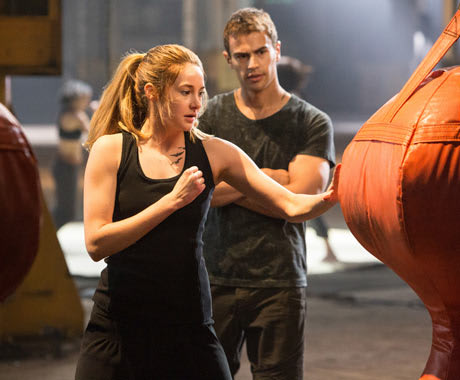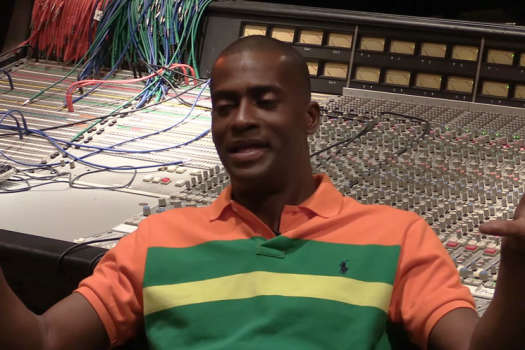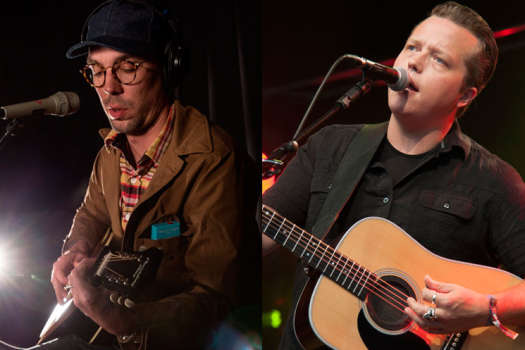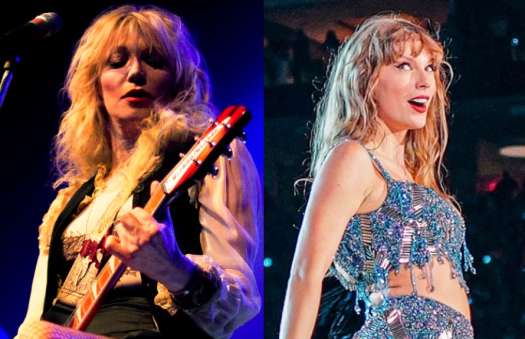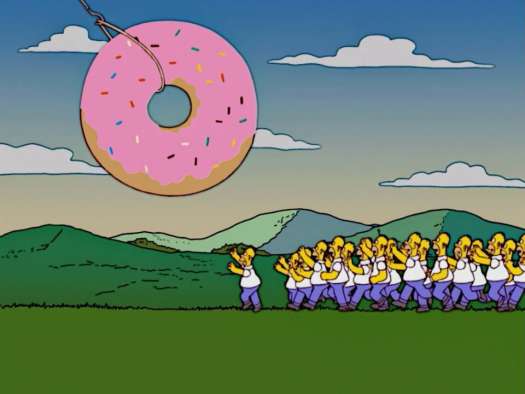The appeal of the coming-of-age narrative seems obvious: young people see themselves in them because said narratives are usually populated with stock characters, relatable challenges and easily understandable metaphors. This is why the film adaptation of Veronica Roth's YA juggernaut, Divergent, will almost assuredly make significant money despite its middling quality.
In Divergent's post-war Chicago, society is organized into factions, each of which are named after a characteristic (kind of), and play a social role: Erudite is the intelligent faction, they're the researchers, scientists, academics; Amity are the simple, kindhearted farmers; Candor are the truth-at-any-cost lawyer types; Dauntless are the fearless cops and soldiers; Abnegation are the selfless, dispassionate public servants. Yes, the names are silly — when's the last time you used "abnegation" in a sentence? — but they are what they are.
Our heroine Beatrice Prior (Shailene Woodley) is Abnegation, but yearns to be Dauntless, to do cool stuff like wear black, get tattoos and jump out of trains. One empathizes.
Beatrice can change her stars, though, however faulty they may seem. When you're around 16, you take a test to tell you what faction you're cut out for, though the choice is ultimately yours to make. Beatrice's test results are odd. She is Divergent, possessing characteristics of various factions. This is bad, because as Eruditer Jeanine Matthews (a wasted Kate Winslet) says in a hit-you-over-the-head moment foreshadowing her as the villain of the piece, "The future belongs to those who know where they belong."
Encouraged to hide her divergence, Beatrice uproots herself and becomes Dauntless. There, she rebrands herself as Tris, likes a boy, hates another boy, makes friends with Lenny Kravitz's daughter, wears black, gets tattoos and jumps out of trains. Bitchin', right?
Wrong. There's some nastiness and skullduggery going on amongst certain factions, and imagery that brings to mind a lot of social scapegoating and sickening political power plays that will seem familiar to anyone who knows anything about Nazi Germany or, say, Rwanda. But maybe I'm thinking too much.
The main issues with Divergent, which is at best a pale imitation of The Hunger Games, are twofold. One: nothing ever feels tense or unpredictable. It's so safe it's hard to feel anything for any character. Two: by simplifying growing up into a literal choice people make, it trivializes so much. Tris is special because she can't be slotted into one role (wish fulfillment for every teenager who feels alt) but everyone who isn't Divergent is a one-note character whose lives (and occasionally, deaths) are essentially, and unsettlingly, meaningless.
(eOne)In Divergent's post-war Chicago, society is organized into factions, each of which are named after a characteristic (kind of), and play a social role: Erudite is the intelligent faction, they're the researchers, scientists, academics; Amity are the simple, kindhearted farmers; Candor are the truth-at-any-cost lawyer types; Dauntless are the fearless cops and soldiers; Abnegation are the selfless, dispassionate public servants. Yes, the names are silly — when's the last time you used "abnegation" in a sentence? — but they are what they are.
Our heroine Beatrice Prior (Shailene Woodley) is Abnegation, but yearns to be Dauntless, to do cool stuff like wear black, get tattoos and jump out of trains. One empathizes.
Beatrice can change her stars, though, however faulty they may seem. When you're around 16, you take a test to tell you what faction you're cut out for, though the choice is ultimately yours to make. Beatrice's test results are odd. She is Divergent, possessing characteristics of various factions. This is bad, because as Eruditer Jeanine Matthews (a wasted Kate Winslet) says in a hit-you-over-the-head moment foreshadowing her as the villain of the piece, "The future belongs to those who know where they belong."
Encouraged to hide her divergence, Beatrice uproots herself and becomes Dauntless. There, she rebrands herself as Tris, likes a boy, hates another boy, makes friends with Lenny Kravitz's daughter, wears black, gets tattoos and jumps out of trains. Bitchin', right?
Wrong. There's some nastiness and skullduggery going on amongst certain factions, and imagery that brings to mind a lot of social scapegoating and sickening political power plays that will seem familiar to anyone who knows anything about Nazi Germany or, say, Rwanda. But maybe I'm thinking too much.
The main issues with Divergent, which is at best a pale imitation of The Hunger Games, are twofold. One: nothing ever feels tense or unpredictable. It's so safe it's hard to feel anything for any character. Two: by simplifying growing up into a literal choice people make, it trivializes so much. Tris is special because she can't be slotted into one role (wish fulfillment for every teenager who feels alt) but everyone who isn't Divergent is a one-note character whose lives (and occasionally, deaths) are essentially, and unsettlingly, meaningless.
